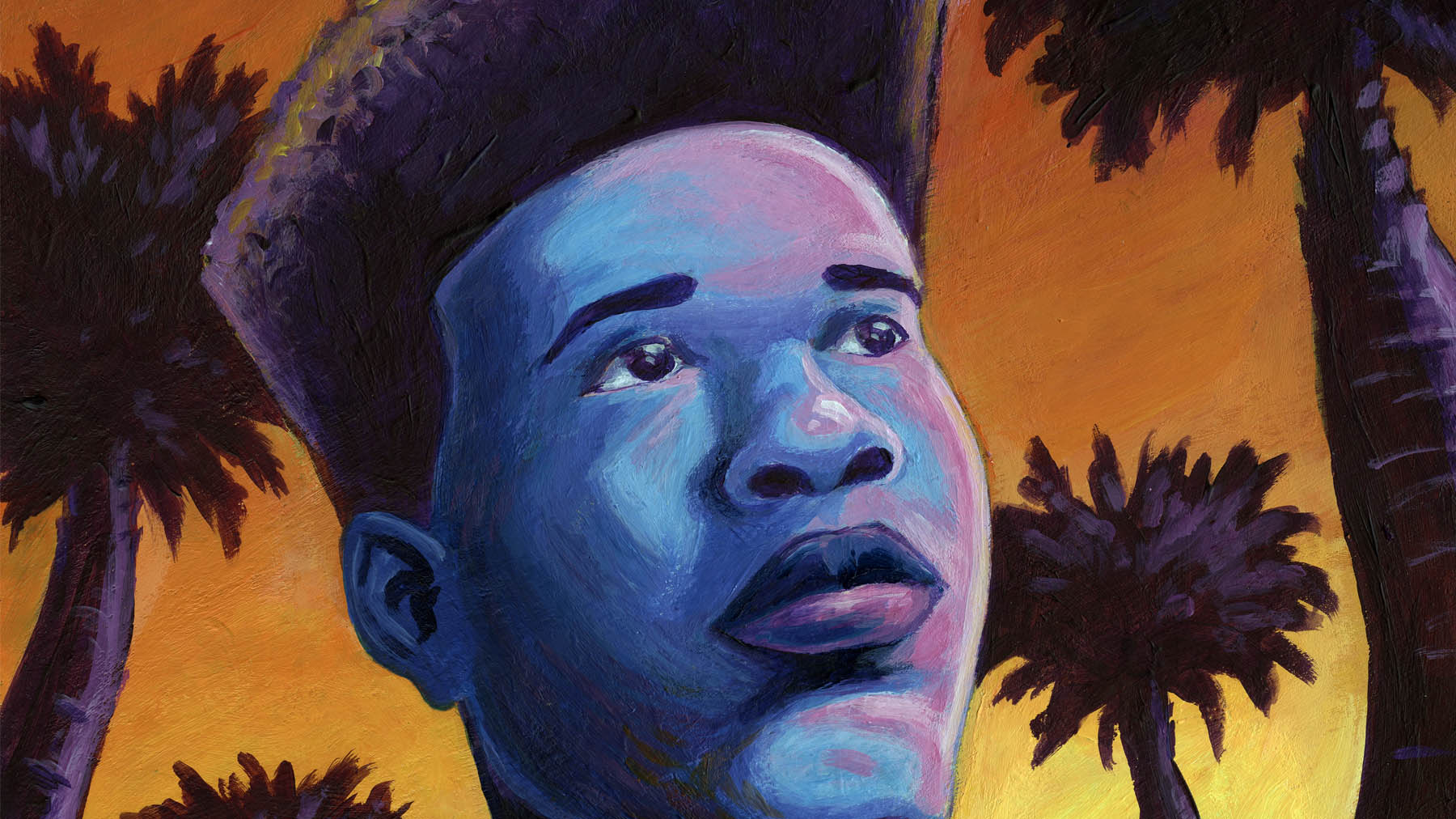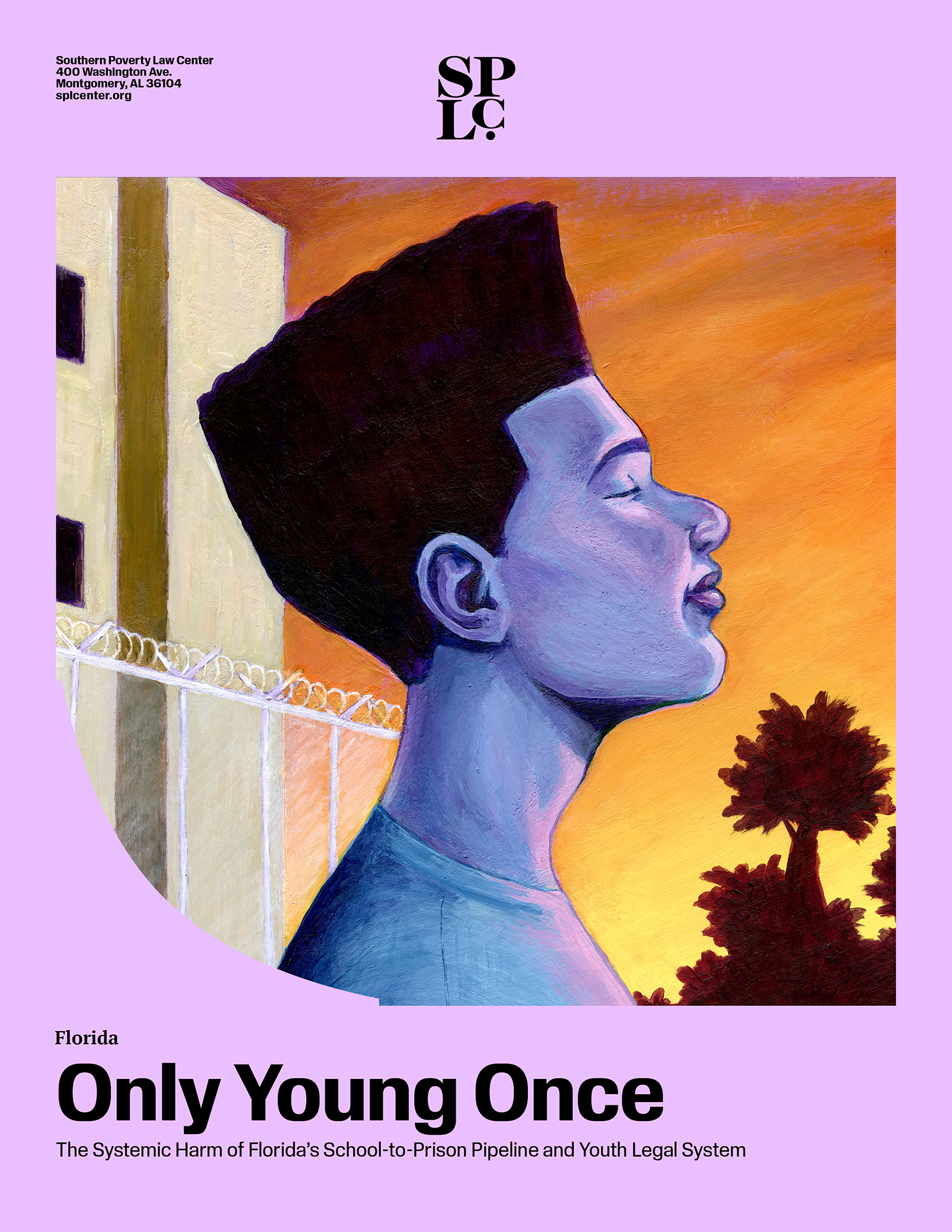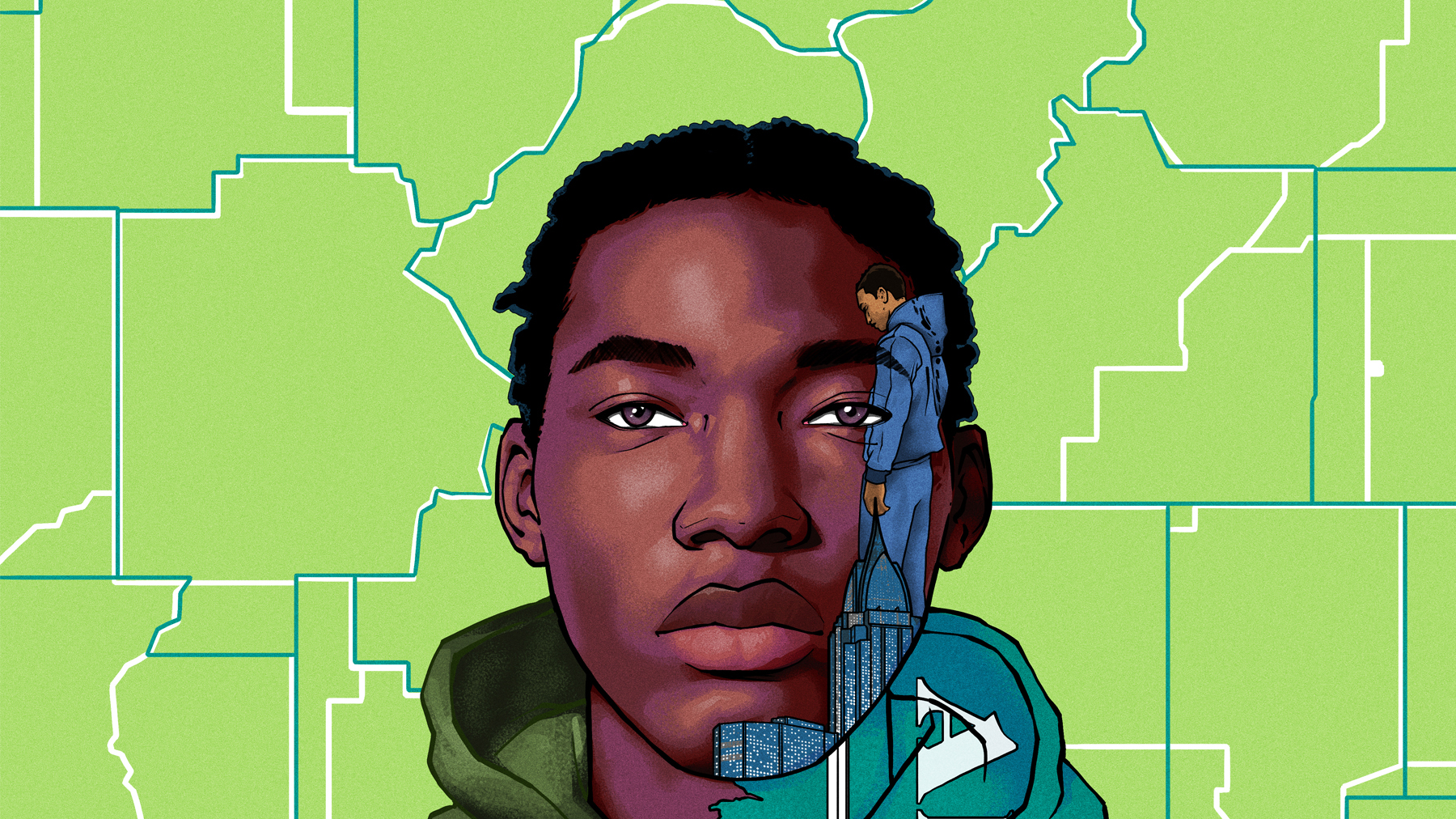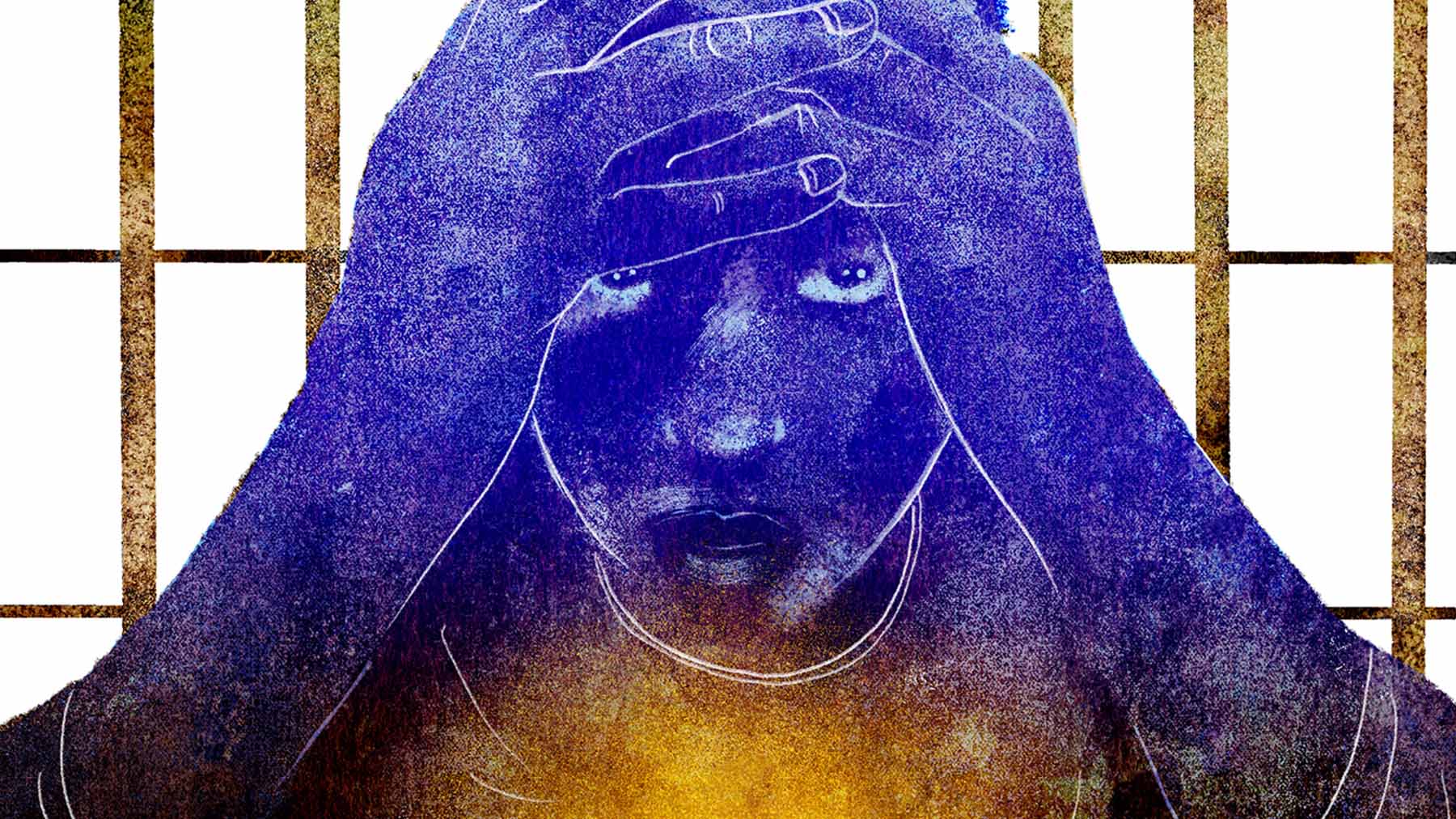Five years ago in Orlando, Florida, a 6-year-old Black girl named Kaia Rolle was arrested after throwing a tantrum in class. The viral video of her being escorted out of her school and into a police car, despite her tearful pleas for a second chance, illustrates Florida’s well-developed school-to-prison pipeline – policies and practices that disproportionately funnel Black children into the state’s legal system. Even with the eventual passage of the Kaia Rolle Act in 2020, setting a minimum age for arrests, children as young as 7 can still be arrested and prosecuted in Florida.
In our report, Only Young Once: The Systemic Harm of Florida’s School-to-Prison Pipeline and Youth Legal System, the Southern Poverty Law Center explores the scope and impact of youth incarceration and ways Florida can reform and disrupt these systems.
Florida’s investment in youth discipline has produced a system that disproportionately pushes Black children out of schools and into carceral facilities shown to be incredibly dangerous for children, and does so at a great expense to taxpayers.
“All children deserve their childhood. However, Kaia Rolle was robbed of hers when she was arrested as a 6-year-old first grader. The same traumatic experience can still happen to any 7-year-old in Florida today,” said Delvin Davis, SPLC senior policy analyst and report’s author. “Florida should put greater investment in child development, rehabilitation, and education rather than child incarceration.”
Illustration at top by Marcus Kwame Anderson






